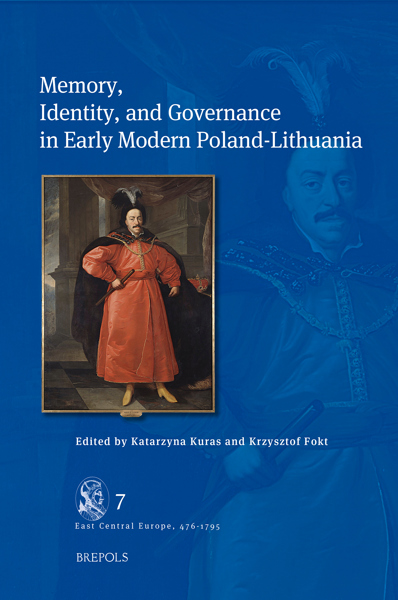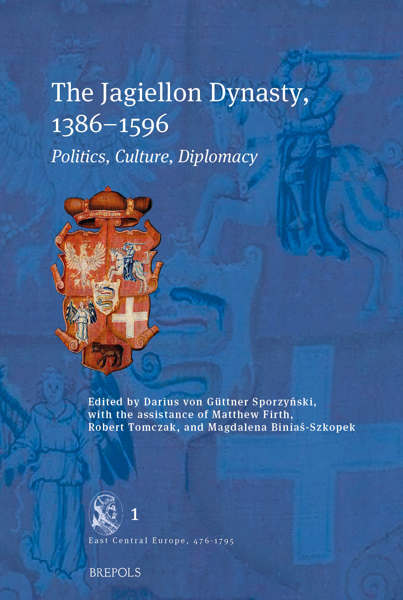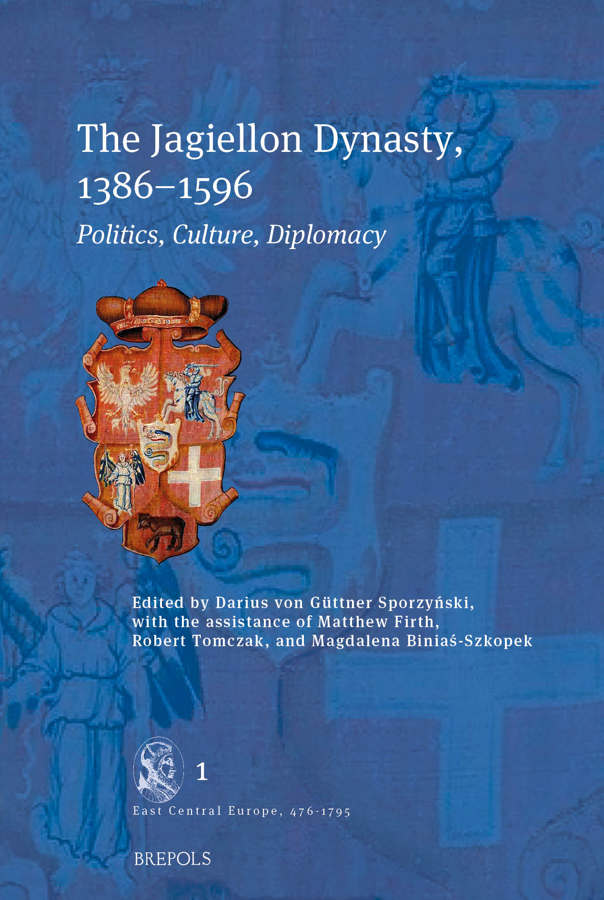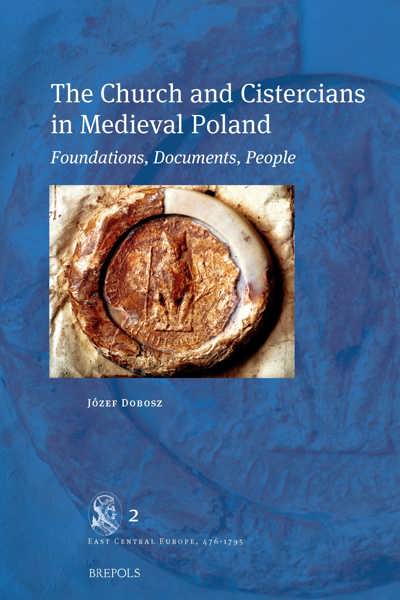
- Pages: 273 p.
- Size:156 x 234 mm
- Illustrations:1 tables b/w., 7 maps b/w
- Language(s):English
- Publication Year:2024
- € 80,00 EXCL. VAT RETAIL PRICE
- ISBN: 978-2-503-59897-0
- Hardback
- Available
- € 80,00 EXCL. VAT RETAIL PRICE
- ISBN: 978-2-503-59898-7
- E-book
- Available
A collection of studies on the social, economic, and political impact of the Jagiellon dynasty on Central Europe in the medieval and early modern periods.
A/Professor Darius von Güttner-Sporzyński, FRHistS FRSA, Australian Catholic University, Canberra, is a historian of East Central Europe with a particular interest in cultural aspects of transmission of ideas and identity. His publications cover diverse aspects of history from the Middle Ages to early modern and the modern eras. His current research includes the early modern dynastic networks of power and examination of cultural, familial, religious, and political aspects of women’s rulership.
Dr Matthew Firth, Flinders University in Adelaide, Australia, lecturers in medieval history and literature. As a historian, his research explores historiography, cultural memory, and the transmission of historical narratives across the Anglo-Scandinavian world from the tenth to the thirteenth centuries. His recent scholarly contributions include a biographical study of tenth-century English queens, historiographical analyses of the Sagas of Icelanders, and investigations into the legacies of England’s tenth-century kings.
Dr Robert Tomczak, Adam Mickiewicz University, Poznań, Poland, is a historian with a research interest in the transmission of ideas and intercultural education, particularly through the lens of the Grand Tour and the academic experiences of Polish students in Prague between the sixteenth and eighteenth centuries. His publications offer in-depth analyses of these subjects, enriching the understanding of Europe's historical educational migrations and intellectual networks.
Professor Magdalena Biniaś-Szkopek, Adam Mickiewicz University, Poznań, Poland is Director, the Kórnik Library. She is a historian specialising in women history and aspects of medieval marriage. Her research encompass the political history of the twelfth century Poland and early modern cultural life of elite women. Her recent publication presented details of matrimonial disputes handled by the consistorial courts in Poland in the Middle Ages. She is the editor of the academic journal Historia Slavorum Occidentis.
The volume offers a re-examination of the rise of the Jagiellon dynasty in medieval and early modern Central Europe. Originating in Lithuania and extending its dominion to Poland, Hungary, and Bohemia, the Jagiellon dynasty has left an enduring legacy in European history. This collection of studies presents the Jagiellons as rulers with dynamic and negotiated authority. It begins with the dynasty’s origins and its dynastic union with Poland, milestones that have shaped the political and cultural trajectory of the dynasty’s reign. The volume places significant emphasis on the role of royal consorts, thereby broadening traditional gender-focused perspectives. Far from being mere accessories, queens had a considerable influence on governance, economic matters, and diplomacy. The cultural impact of Jagiellon rule is analysed through interactions with humanists and the intellectual milieu of the court. The performative aspects of Jagiellon power, including the use of words, gestures, and even intentional silences, are examined as powerful tools of articulation. Emotional factors that influence governance and intricate dynastic relationships are explored, revealing how political decisions, especially constitutional reforms, are made more rapidly when faced with perceived dynastic vulnerabilities. In Poland, the rise of parliamentary institutions under the earlier Jagiellon monarchs epitomises the concept of negotiated authority, underscoring the growing political role of the nobility. This volume thus provides a multi-faceted and nuanced understanding of the Jagiellon dynasty’s legacy in political, cultural, and gender-related spheres, enhancing understanding of European history.
Preface to the first volume of the East Central Europe series
Central Europe as Jagiellon Europe
Darius von Güttner-Sporzyński
Chapter 1. The Making of the Dynasty: From the House of Gediminas to the House of Jagiellon
Rimvydas Petrauskas
Chapter 2. Władysław Jagiełło: The Founder of Jagiellon Power in East Central Europe
Tomasz Graff
Chapter 3. Queens Consort of the Jagiellon Monarchs
Bożena Czwojdrak
Chapter 4. Sigismund I the Elder and the Intellectual Milieu of Erasmus of Rotterdam
Robert T. Tomczak
Chapter 5. The King and his Subjects: Methods and Means of Royal Communication
Piotr Węcowski
Chapter 6. The solitude of Sigismund II Augustus: Between Loneliness and Seclusion
Marek Ferenc
Chapter 7. The Lithuanian Wife of Sigismund II Augustus: Barbara Radziwiłł’s Path to becoming Queen of Poland
Agnieszka Januszek-Sieradzka
Chapter 8. The Royal Household of Stephen Báthory and its Jagiellon Legacy
Dominik Kadzik
Chapter 9. Representation, Society, and the Jagiellon Monarchy, 1506–1572
Jolanta Choińska-Mika
Index




